
Artificial intelligence (AI) can aid in breast cancer detection, but radiologists need training to ensure accuracy and prevent missed cancers.

Cameron Santoro is an associate editor for The American Journal of Managed Care® (AJMC®), AJMC.com, and The Center for Biosimilars®.

Artificial intelligence (AI) can aid in breast cancer detection, but radiologists need training to ensure accuracy and prevent missed cancers.

Autologous fat grafting offers hope for patients with alopecia, especially those with scarring, by reducing inflammation and stimulating hair growth.

Harold "Hal" Burstein, MD, PhD, emphasizes the crucial role of strong patient-physician partnerships in breast cancer treatment, empowering patients through shared decision-making.

Arash Mostaghimi, MD, MPA, MPH, assistant professor of dermatology, director of the inpatient dermatology consult service, and codirector of the Complex Medical Dermatology Fellowship at Brigham & Women's Hospital, discusses the recent FDA approval of deuruxolitinib for the treatment of moderate to severe alopecia areata.
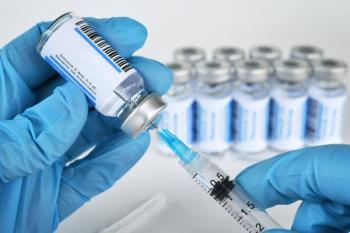
Despite the development of life-saving vaccines, the resurgence of preventable diseases highlights the ongoing challenges posed by misinformation, resource disparities, and global health inequities.

Accessia Health works with advocacy groups to understand specific needs, such as travel assistance, affordable care, and diagnostic testing, ensuring a personalized and human-centered approach to health equity.

The COVID-19 pandemic disrupted breast cancer screenings, leading to decreased follow-up rates and widening health disparities.

Trusted community organizations can effectively communicate and connect underserved populations to necessary health services, Tiara Green, MSEd, Accessia Health says in an interview.

Posters presented at the Society for Pediatric Dermatology Annual Meeting shed new light on pediatric hair loss, including the rising prevalence of androgenetic alopecia in children, the potential of artificial intelligence to assess hair loss severity, and the long-term safety of ritlecitinib for treating alopecia areata in adolescents.

Leda Mannent, MD, global project head, Immunology and Inflammation, Sanofi, outlines future steps for the clinical development of rilzabrutinib, as well as promising data to advance to phase 3 studies.

The risk of early-onset breast cancer, particularly luminal A and triple-negative subtypes, was higher in Black women with obesity and high leptin levels compared with White women. This research highlights the urgent need for targeted interventions to address racial disparities in breast cancer outcomes.

The FDA has approved deuruxolitinib, an oral medication developed by Sun Pharma, as the first-line treatment for adults with moderate to severe alopecia areata.


Health care inequity is costing the United States billions of dollars without providing quality outcomes for patients with rare and chronic diseases, Tiara Green, MSEd, president of Accessia Health, tells The American Journal of Managed Care.

Despite a significant increase in women with unilateral breast cancer who received a bilateral mastectomy, this study found no survival benefit compared with other treatment options. Although removing the unaffected breast reduces the risk of developing cancer in the other breast, results did not show decreased risk of death from breast cancer.
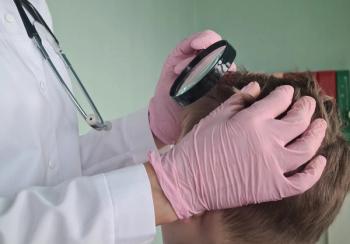
Two posters presented at the Society for Pediatric Dermatology Annual Meeting explored common health conditions linked to childhood alopecia areata and the effectiveness of dupilumab treatment in children with both alopecia areata and atopic dermatitis.
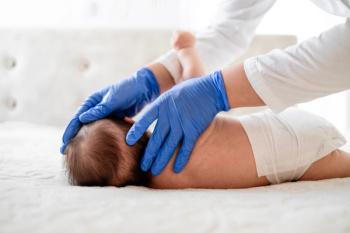
Marissa Joseph, MD, MSc, FRCPC, medical director at Women’s College Hospital in Toronto, Ontario, Canada, highlighted cases from her practice to illustrate the recommended approach to scarring inflammatory scalp dermatosis in adolescents at the Society for Pediatric Dermatology Annual Meeting.

Study results suggest hormone therapy after breast cancer may lower dementia risk, particularly for younger Black women, but further research is needed to confirm these findings.

A literature review found a link between COVID-19 vaccination and alopecia, with most cases experiencing hair loss within 1 month after the first dose. However, the small sample size and limited data call for further investigation.

An expert consensus by Spanish dermatologists offers treatment recommendations for androgenetic alopecia, the most common cause of hair loss, using a combination of medications and hair transplantation depending on the patient's sex, age, and other factors.

A remote monitoring app with alerts for doctors did not improve medication adherence in patients with breast cancer, but those receiving tailored text messages on top of monitoring saw reduced high-cost health care use.
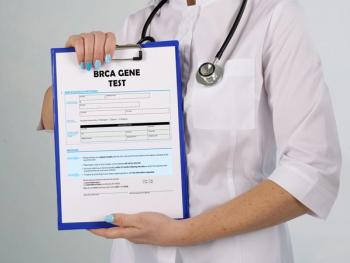
Breast-conserving therapy for BRCA1/2 mutation carriers has higher risks of future breast cancers than the general population, but most patients avoid another cancer event, and many remain bilateral mastectomy–free after 20 years.

Results found nail changes in patients with alopecia areata (AA) can occur before, after, or independent of hair loss with the most common nail problems including pitting, ridging, and white spots.

Early data suggest that BLU-222 combined with ribociclib and fulvestrant is safe and tolerable for patients with HR-positive and HER2-negative breast cancer, potentially overcoming resistance to CDK4/6 inhibitors.

Underserved communities, already facing higher asthma prevalence due to social determinants of health, are disproportionately affected by the impact climate change is having on asthma exacerbations. Potential solutions include education for patients and health care providers, climate litigation to establish environmental rights, and policy changes to curb climate change.

Asthma is worsening under the effects of climate change, such as air pollution and pollen production, especially for underserved populations.
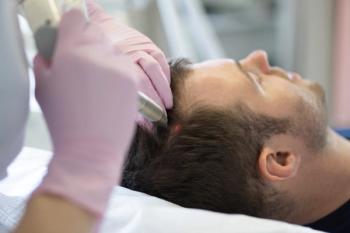
Various laser technologies are emerging as a promising treatment for alopecia, showing effectiveness in hair regrowth with minimal adverse events. These treatments target inflammation and stimulate hair follicles to promote hair growth, but more research is necessary to confirm long-term safety and efficacy for some lasers.

The FDA approved SH-105 (Tepylute) prediluted injectable treatment for breast and ovarian cancers. This innovative formulation eliminates the need for complex powder reconstitution, improving safety and patient care.

Leda Mannent, MD, global project head, Immunology and Inflammation, Sanofi, discusses efficacy outcomes in patients with asthma who received rilzabrutinib.

Patients with stage I HER2-positive breast cancer treated with rastuzumab emtansine (T-DM1) had beneficial long-term outcomes with a 5-year disease-free survival rate of 97%, with the HER2DX score potentially identifying those at higher risk of recurrence.

259 Prospect Plains Rd, Bldg H
Cranbury, NJ 08512
© 2025 MJH Life Sciences®
All rights reserved.
